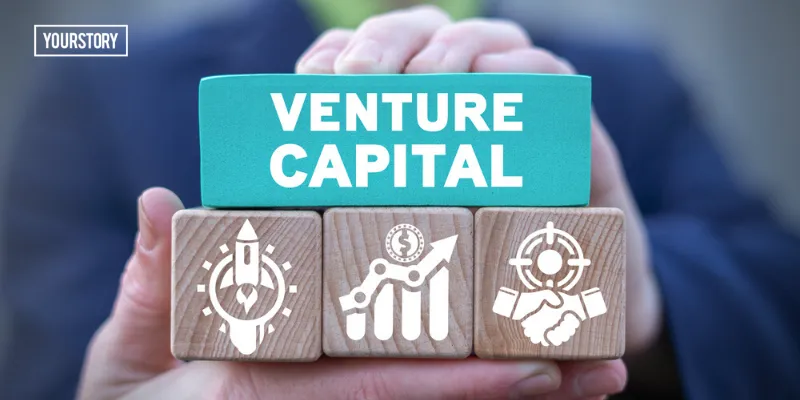Young VC brigade gains traction in the Indian startup ecosystem
A new breed of venture capitalists, helmed by professionals who are relatively young, are playing an important role in the Indian startup ecosystem.
From the quantum of funds invested to the creation of new unicorns, the year 2021 was record-breaking in many ways for the Indian startup ecosystem. A trend spotted last year, which hasn’t been talked about much, is the role played by young venture capitalists.
Venture capitalists typically have more than two decades of professional experience and come with elaborate structures. However, over the past two years, a new breed of young venture capitalists has emerged. These VCs have smaller teams and are also nimble in their approach who generally come in at early stage.
The LetsVenture Startup Outlook Report on the trends it observed in 2021 notes, “An interesting trend that emerged this year was a younger age group of investors and a higher age group of founders. In the previous years, the startup ecosystem has largely seen seasoned investors and younger founders dominating the sector. However owing a plethora of factors in the startup landscape such as ’s IPO & accelerated pace of ESOP buybacks which created a new set of founders and investors the tables have turned.”

LetsVenture further notes that on a year-on-year basis, it witnessed a 75 percent jump in new angel investors with no prior experience in the field registering on the platform while the same figure for experience investors stood at 77 percent. For the report, LetsVenture analysed data from over 7,000 startups and investors who registered on the platform in 2021.
Young venture capital firms are usually formed by founders who have graduated through the angel funding route.
Adith Podhar, founder of , a micro VC fund, tells Yourstory, “The experience of angel investing has given us the confidence to set up our own fund and now we are able to get into good deals as we can relate with the new age businesses.”
Besides Gemba Capital, Rockstud Capital, Sparrow Capital, and Speciale Invest, among others, are micro VC funds and run by people who are well under their 40s.
Gemba Capital has made 33 startup investments across the four sectors since 2017 with a typical funding value of around $200,000 per company. It typically gets involved in the pre-seed and seed stages while Bengaluru-based Sparrow Capital bets up to $100,000 per company and has made around nine investments since its inception in July 2020.
These younger VCs believe that there is so much action in the Indian startup ecosystem that it is possible for them to carve out a niche.
Abhishek Agarwal, founder of says, “We are very comfortable with the risky model of these new-age businesses and patient enough to see them mature. This is what makes us different.”
With a ticket size between Rs 1 and 2 crore, Mumbai-based Rockstud Capital has invested in nearly 10 startups and is expecting to close the fund size to around Rs 50 crore. It typically invests in sectors such as edtech, healthtech, consumer internet, among others.
A new approach
Younger VCs also have a different approach for connecting with startup founders. They do not bury entrepreneurs with excel sheets, rather try to connect with them on a personal level.
Besides, they are also very approachable which may not be the case with a conventional venture capital firm.
Adith says, “We treat the startup founders as our friends and they can be vulnerable to us which may not be the case with a traditional venture capital firm.”
There have been instances where startup founders couldn’t get commitments from a large venture firm as they have to follow to certain processes while micro VC funds were able to quickly chip in the capital.

Abhishek, who comes from an entrepreneurial background, says he relates to the pressure that a startup founder typically undergoes while building a business.
“We don’t focus on excel sheet but try to understand what founders want to build. We bring comfort rather than chaos,” he remarks.
Today, the aspiration of any startup founder is to have three important constituencies on their cap table – a large VC firm, a micro VC firm and a prominent angel investor.
A large VC firm gives the startup the ability to raise the next round of funding while the micro VC firm chips in during urgent requirements while an angel investor plays the role of mentor or active collaborator.
Madhur Singhal, Managing Partner and CEO, Praxis Global Alliance believes that this breed of young VC firms is playing an important role in the growing Indian startup ecosystem.
“These kind of investors are actually broad basing the entire structure as there are variety of business which require different type of capital,” says Madhur.
According to Madhur, there are many businesses that do not promise or show the 100X level of growth that conventional VC firms look for. However, several of these startups post a respectable 25-30 percent of annual growth rate and require capital.
It is in this kind of space that these new breed of investors are playing an active role.
Family offices betting big
The past few years have also seen family offices keen to put their money into startups. These bets are usually managed by the younger scions.
Adith says, “Today there is a lot more opportunity to raise capital from the HNIs and family offices.” He adds that it is not an easy task to manage one’s own fund unless one is very seriously looking at it as a career path.
There have been instances where successful startup founders have launched their own investment fund but there is also a note of caution that this may not be path of guaranteed success.
As one VC puts it, “A startup founder mindset is very different from that of an investor. It is difficult to make that transition.”
The current environment of new-age type of VCs emerging is also perhaps the function of the capital available in the ecosystem.
Abhishek says, “During any funding boom phase especially now in the startup segment we see a lot of new investors come in but one has to watch how things pan out where there is a correction though there no such signs as of now.”
Right now, there is a buoyancy in the entire startup ecosystem with new innovative businesses emerging and different breed of investors willing to back such ventures and there is unlikely to be any change.
“With rising awareness and popularity for startups, LetsVenture expects that in 2022, new angel investors will surpass experienced investors,” says the investor platform.
Edited by Affirunisa Kankudti









